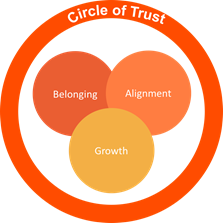
Dynamic content is a term used for when the body of an email changes depending on the recipient, going beyond simple first name personalisation. Forget having to spend time on creating multiple emails with content variations, with dynamic content you can use one email campaign to display a mix of different images, text, offers and call to actions that create a message relevant to each customer.
What Data Can You Use for Dynamic Content?
There are many ways to capture customer data, from simply asking them to complete their profile preferences to tracking their behaviour and activity. Having more detailed data on your customers will enable you to hyper-personalise your email marketing campaigns, ensuring that the message sent is relevant and worthwhile.
Pulling dynamic content into your email marketing campaigns using Maxemail couldn’t be easier. Many email service providers look up information from external data sources, but with Maxemail you can store details directly within the platform using individual customer profiles and in-depth datatables. Use our advanced email builder to simply drag and drop dynamic content blocks into your emails and customise rules for pulling in specific data.
So, how can you use dynamic content to personalise your email marketing campaigns? It all depends on the data you have and your overall objective, but here are a few ideas to get you started. If you don’t have enough data for some of your customers you can define a generic set of products for the dynamic content blocks, which will still drive engagement and sales.
Hero images and other content
A really simple place to start is with your hero image, perhaps tailored by gender or other demographic data taken from your customer profiles. For example, a fashion retailer may create an email campaign based on promoting this season’s hottest trends. For this they can create rulesets to display a different hero image for male and female subscribers, which will also require a variation on the copy, call to action and any links to provide highly-relevant email content.
Recommended products
Rather than showing the same products to all customers you can use dynamic content blocks within your emails to tailor recommendations based on their interests, purchase history and spending style.
For example, a travel retailer can show airport parking offers, popular holiday excursions and flight extras relating to a customer’s booking. A retailer might want to categories products by price and recommend ones to customers based on their spending history.
Pricing and discounts
If you’re promoting a particular product or service, why offer everybody the same price when you can tailor it based on your customers discount band? By pulling discount pricing into your emails you can be more aggressive with your dynamic content and ensure that you’re sending the best rates to your customers.
Customer Profile Data vs Datatables
Dynamic content allows you to create rulesets for each section that changes based on data you have for each one of your customers. A customer profile database will feature the customer’s email address only once with one piece of information per profile field. For example, it will provide top level information about that customer such as gender, age, location, favourite brand, which can be used to determine what dynamic content is shown.
However, with a datatable you have the ability to collect more in-depth information about each customer. They may appear multiple times in your datatable with detailed information relating to past purchases, previous bookings and more. This allows you to store historical data, learn from your customers and hyper-personalise your emails. You can display dynamic content that is relevant to your recipient based on a pool of information you have collected, such as the products they are interested in or the departure airport they are most likely to fly from.
Digital & Social Articles on Business 2 Community(45)





